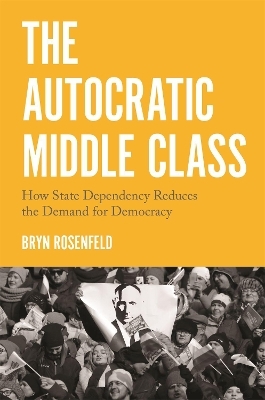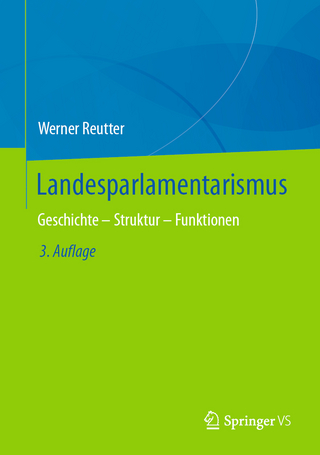
The Autocratic Middle Class
How State Dependency Reduces the Demand for Democracy
Seiten
2020
Princeton University Press (Verlag)
978-0-691-19218-5 (ISBN)
Princeton University Press (Verlag)
978-0-691-19218-5 (ISBN)
How middle class economic dependence on the state impedes democratization and contributes to authoritarian resilienceConventional wisdom holds that the rising middle classes are a force for democracy. Yet in post-Soviet countries like Russia, where the middle class has grown rapidly, authoritarianism is deepening. Challenging a basic tenet of d
How middle-class economic dependence on the state impedes democratization and contributes to authoritarian resilience
Conventional wisdom holds that the rising middle classes are a force for democracy. Yet in post-Soviet countries like Russia, where the middle class has grown rapidly, authoritarianism is deepening. Challenging a basic tenet of democratization theory, Bryn Rosenfeld shows how the middle classes can actually be a source of support for autocracy and authoritarian resilience, and reveals why development and economic growth do not necessarily lead to greater democracy.
In pursuit of development, authoritarian states often employ large swaths of the middle class in state administration, the government budget sector, and state enterprises. Drawing on attitudinal surveys, unique data on protest behavior, and extensive fieldwork in the post-Soviet region, Rosenfeld documents how the failure of the middle class to gain economic autonomy from the state stymies support for political change, and how state economic engagement reduces middle-class demands for democracy and weakens prodemocratic coalitions.
The Autocratic Middle Class makes a vital contribution to the study of democratization, showing how dependence on the state weakens the incentives of key societal actors to prefer and pursue democracy.
How middle-class economic dependence on the state impedes democratization and contributes to authoritarian resilience
Conventional wisdom holds that the rising middle classes are a force for democracy. Yet in post-Soviet countries like Russia, where the middle class has grown rapidly, authoritarianism is deepening. Challenging a basic tenet of democratization theory, Bryn Rosenfeld shows how the middle classes can actually be a source of support for autocracy and authoritarian resilience, and reveals why development and economic growth do not necessarily lead to greater democracy.
In pursuit of development, authoritarian states often employ large swaths of the middle class in state administration, the government budget sector, and state enterprises. Drawing on attitudinal surveys, unique data on protest behavior, and extensive fieldwork in the post-Soviet region, Rosenfeld documents how the failure of the middle class to gain economic autonomy from the state stymies support for political change, and how state economic engagement reduces middle-class demands for democracy and weakens prodemocratic coalitions.
The Autocratic Middle Class makes a vital contribution to the study of democratization, showing how dependence on the state weakens the incentives of key societal actors to prefer and pursue democracy.
Bryn Rosenfeld is assistant professor in the Department of Government at Cornell University.
| Erscheinungsdatum | 16.01.2021 |
|---|---|
| Reihe/Serie | Princeton Studies in Political Behavior |
| Zusatzinfo | 22 b/w illus. 28 tables. |
| Verlagsort | New Jersey |
| Sprache | englisch |
| Maße | 156 x 235 mm |
| Themenwelt | Sozialwissenschaften ► Politik / Verwaltung ► Politische Systeme |
| Sozialwissenschaften ► Politik / Verwaltung ► Politische Theorie | |
| Sozialwissenschaften ► Soziologie ► Makrosoziologie | |
| ISBN-10 | 0-691-19218-9 / 0691192189 |
| ISBN-13 | 978-0-691-19218-5 / 9780691192185 |
| Zustand | Neuware |
| Haben Sie eine Frage zum Produkt? |
Mehr entdecken
aus dem Bereich
aus dem Bereich
über Alltagsorte des sozialen Zusammenhalts
Buch | Softcover (2024)
transcript (Verlag)
24,00 €
Geschichte - Struktur - Funktionen
Buch | Hardcover (2024)
Springer (Verlag)
139,99 €


